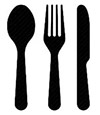Housing and Utilities
- To get a lower rate, refinance your mortgage, or switch from a 15-year to a 30-year loan.
- To save money on taxes, challenge your property tax assessment.
- Investigate whether bundled services (phone, cable, internet) could save you money, or whether you can do without some of these services. Many people are replacing landlines with cell phones and swapping cable for significantly cheaper online streaming services.
- Be more efficient with your energy usage by washing only full loads of dishes or laundry.
- Lower energy bills by turning off lights and electronics when not in use, and turning off heat or A/C when no one is home.
- Install a programmable thermostat for more control over your heating and cooling costs.
- Weatherproof your house and seal all cracks and openings to maintain insulation to save on energy costs.

Personal Insurance and Retirement
- Consider refinancing your term life insurance. Rates have dropped in the past decade, so you may qualify for a lower premium.
- If you have a long-term disability policy, investigate the savings if you opt for a longer waiting period to reduce premiums (as long as you have an emergency fund).
- Suspend contributions to annuities and other accounts that don’t offer matching funds or tax breaks.
- At a minimum, contribute the amount your company will match each month to your 401(k).

Food
- Bring lunches and snacks to work. Also bring your own morning coffee.
- Check your fridge for items to use before they go bad.
- Give up unhealthy vices such as soda, candy, salty snacks, etc.
- Use the weekly grocery store circulars to find sale items and shop accordingly.
- Prepare a meal plan for the week and stick to it when grocery shopping. This also helps avoid last-minute take-out orders.
- Seek protein in cheaper alternatives to meat such as eggs and beans.

Transportation
- Raise the deductibles on your auto insurance policy.
- Strive to be eligible for discounts on your insurance such as good-driver, good-student, and multiple car account programs.
- Investigate carpools and public transportation, and see if your employer offers any subsidies.
- Avoid repair bills by maintaining your vehicle properly with regular oil and filter changes.
- Plan your errands around your driving route to avoid multiple trips to save on gas.
Buying used cars and driving them for years is a great way to reduce your lifetime transportation expenses.
Health Care
- Buy generic or store brand drugs, and speak with your physician about less expensive alternatives, or even free samples.
- Order prescriptions via mail or internet.
- Look for free or low-cost clinics.
- Monitor insurance claims to make sure you’re not getting stuck with bills.
- Take care of yourself (exercise regularly, avoid unhealthy habits like smoking and alcohol, and wash your hands regularly to avoid getting sick).
- Utilize any reimbursement benefits that your health insurance may offer.
With continuously increasing health care costs, many employers are asking their workers to take on a larger share of the expense.
Clothing and Services
- Perform an inventory of your wardrobe and only buy items that work with what you already own. Even better, shop in your own closet and repurpose pieces you haven’t worn in years.
- Buy clothes out of season when stores discount them (winter coats in summer, shorts in fall, etc.)
- Consider buying used at thrift shops and secondhand stores. Also, hold a clothing swap with friends.
- Avoid dry-clean only clothing.
- Try getting your hair cut at a beauty school for a much lower price than a salon.
- Cancel your health club/gym membership and find ways to workout at home or outside (go for a walk or run, purchase weights to use in your home, workout with friends, and try free workout videos online).
- Cancel unnecessary expenses like magazine subscriptions and use free resources like the internet and libraries.

